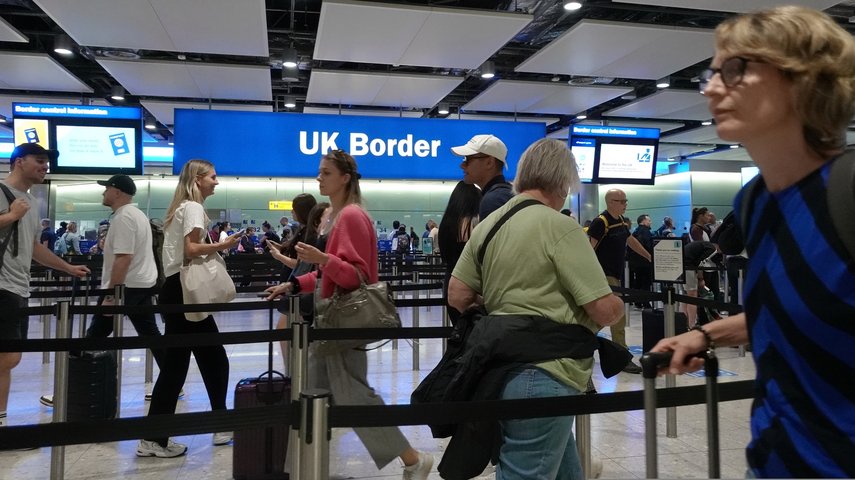New Immigration Rule Changes Announced - Statement of Changes HC 836

Key Points
- The rules around long residence are changing to include time spent as a British citizen.
- The definition of “continuous residence” is being changed to include time lawfully spent in the Crown Dependencies.
- Changes are being made to the Private Life rules regarding children and young adults who have “grown up” in the UK.
- Changes will allow individuals with Pre-Settled Status to qualify for settled status if they have been resident in the UK for “at least 30 months out of the most recent 60 months”.
Changes to UK immigration rules were announced by the government on 24 June 2025. There are changes to: Appendix International Armed Forces and International Civilian Employees (which take effect on 17 July 2025), Appendix Long Residence, Appendix Continuous Residence, and Appendix Private Life (which take effect on 29 July 2025). There are also much welcomed amendments to the EU Settlement Scheme (EUSS) (which take effect on 16 July) and rules regarding individuals who are denied asylum, as well as some other minor technical changes.
We set out a summary of the key changes; however, specific qualifications and conditions should always be reviewed for individuals and legal advice sought.
Long and Continuous Residence
The rules around long residence are changing to include time spent as a British citizen (unless that citizenship was later revoked, for example if citizenship was obtained fraudulently). In addition, the definition of “continuous residence” is also being changed to include time (lawfully) spent in the Crown Dependencies – Guernsey, Jersey and the Isle of Man - on a route equivalent to those permissible in the UK.
Children and Young Adults who have “Grown up” in the UK (Appendix Private Life)
Changes are being made to the Private Life rules, introduced in Spring 2022, regarding children and young adults who have “grown up” in the UK. For children who have lived in the UK for seven years, they will be able to qualify for settlement after five years. Young Adults (18-25 years), granted permission in the UK on the basis of their family or private life pre 20 June 2022 rule changes, will also now be able to settle under the five year private life rules provided they meet the “half-life” test, at date of application or in a previous application.
The Explanatory Note also states that the continuous residence requirements for children born in the UK who are applying for settlement will be aligned with those for children who were not born in the UK who are also applying for permission to stay.
The EU Settlement Scheme (EUSS)
There had been confusion by pre-settled holders as to what “continuous residence” means for the purposes of permitted absences from the UK under the EUSS. However, changes announced will clarify the position and will allow individuals to qualify for settled status if they have been resident in the UK for “at least 30 months out of the most recent 60 months”. This allows those pre-settled status holders to reach the required threshold even if they have spent some time abroad. These changes will apply where the individual applies personally or under the Home Office's automatic “upgrade” system. The position however remains unchanged, for now, for individuals whose leave lapsed, after two years of absence, prior to the amendments to the Immigration (Leave to Enter and Remain) Order 2000 on 21 May 2024.
Other changes
There are also some minor technical changes, for example:
- Fixing drafting errors in the family and student routes to permit refusal of dependants’ applications where the main applicant is refused
- Updating the rules as to who can act as a sponsor under the EU Settlement Scheme
- Changes to the use of previous English language test certificates
- Clarifying that Electronic Travel Authorisations (ETAs) are required for certain travellers entering the UK from the Republic of Ireland
- Changes to Part 9 of the General Grounds for Refusal, which will make it mandatory to refuse applications or cancel permission for individuals who are excluded from asylum, humanitarian protection, or protection under the principle of non-refoulement due to serious issues, e.g. if there are security or criminal concerns (subject to obligations under human rights laws). This was a discretionary ground for refusal, and will now be a mandatory requirement.
Where can I find the changes?
The changes and the explanatory note can be found on these links
Contact Us
Contact our immigration team online or call +44 (0)20 7329 9090
Anita de Atouguia
Anita has specialised in immigration law since 2000 and is one of the UK's leading immigration experts. She joined Doyle Clayton in 2012 to set up its Immigration service having worked in the immigration practices of some of the UK’s best known full service law firms including CMS and Lewis Silkin.
- Partner & Head of Immigration
- T: +44 (0)20 7778 7233
- Email me
Emma O'Connor
Emma is an employment law partner and is head of client training, working with clients to deliver tailored training to ensure compliance and best practices.
- Partner & Head of Client Training
- T: +44 (0)118 207 5526
- Email me
The articles published on this website, current at the date of publication, are for reference purposes only. They do not constitute legal advice and should not be relied upon as such. Specific legal advice about your own circumstances should always be sought separately before taking any action.
